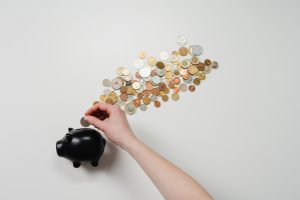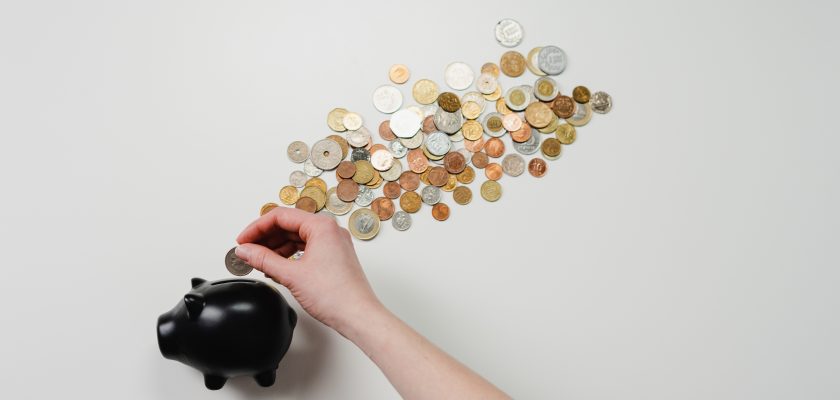It is good to set aside a particular amount of money in a liquid investment, which helps you in your difficult times. But the thing is, the more you liquid your money, the less it’s earning from the interest.
An emergency fund aims to find a balance between collecting interest and having immediate access to funds.
Stocks are unpredictable, and selling them in a pinch may result in a loss.
Three to six months’ worth of spending should be held in a checking or money market account with check-writing rights.

Safe and liquid explanation:
Make sure you can withdraw your money investment easily and quickly at any time before investing in liquid options. Most financial advisors advise against saving the emergency fund in the stock market because markets are unpredictable, as the world just heard after the coronavirus epidemic. To tap your emergency Fund would be disgraceful if you were to sell an asset at cost.
Bonds are usually not good choices for similar reasons, even though they are less volatile than stocks. The first rule for any individual trying to create an emergency fund is to save up to three to six months of expenses. Furthermore, invest your money in an area that gives you the freedom to withdraw your amount whenever you want.
Investment Possibilities:
The dilemma is that in today’s low-income climate, capital on a typical account with a brick and mortar bank paying little to no interest. Per year you lose money for inflation because you don’t collect interest.
While the emergency fund will generate at least 2 to 3 each cent per year to keep pace with inflation, this is a tough challenge as even savings accounts pay no interest. How do you keep your emergency fund extraordinarily stable and not jeopardize it so that you get as far as 0 percent and as close to 2 or 3 percent as possible?
Money Market Accounts:
It could be advantageous to favor cash market accounts over checks. The FDIC covers some, and those who do not usually have unprotected histories are more interest-bearing than checking or traditional savings accounts.
Many leading online banks, such as Synchrony, will provide cash market accounts with a debit or check-writing privileges that allow you to access your funds instantly.
High Yield Saving Accounts:
So you can believe that you will not be tempted to waste your Emergency Fund on items you have not expected, keep money in elevated savings account in a brick and mortar bank where you still have a checking account. You can also access cash with a gift card, an ATM, or an emergency search.
An alternative tool for your emergency fund is a high-yield online savings plan. FDIC’s online saving account is insured because, since online deposits don’t have overhead expenditures from the conventional banks, they usually pay more interest than brick and mortar accounts. Only make sure you know how to reach your money in an emergency since you can’t go to a bank account to withdraw big.
For example, ally bank says that online money transfer, sociable wire transfer, check request, or telephone transfer. It may take a few days, and you may not be able to wait for another option for obtaining emergency savings on an online account.
The further deposits you make, the more you receive, of course. However, make sure you do not have a higher balance in your portfolio than you want to hold to get the interest rate you are after. You don’t have a high-interest account that costs over $5,000 if you have $1,000 to deposit in your emergency fund.
High introductory prices are another thing to look out for. They can be a decent way to raise your emergency fund’s interest income in the short term, but would you like to keep your cash there until the rate gets back to normal? How successful are they? Banks rely on the force of inertia – the fact that your account is easier to maintain instead of searching for a new choice.
Certificates of Deposit:
Consider a deposit certificate (CD) to create still more interest theoretically. The difficulty with having an emergency fund on a CD is that you have to pay the penalty to cash off a CD before it hits maturity, and the CDs with the highest prices typically last five years.
The withdrawal penalty on a 5-year CD, for example, could equate to six months. You will deduct the penalty from your money if you cash the CD out before you have even gained interest worth over six months.
You will also receive more interest after the penalty than for your online money deposit or cash market account while you hold the money in a CD, say, three years before you have to cash out it, based on the rates each account costs. The exact interest earnings expected below the penalty can be computed depending on the amount to be deposited, and your options are compared.
Some banks offer no-penalty CDs that allow your money to be withdrawn without losing any interest you receive. If you receive a better interest rate than a standard CD, you can earn interest from a non-penalty CD while maintaining liquidity. FDIC-insured CDs are even. A CD-laden development can help prevent or reduce early withdrawal charges while buying many smaller CDs that grow at various times rather than one massive CD.
Stocks and Bonds:
To achieve a better return, you could invest your emergency fund in stocks and bonds, but your investment was less stable and subject to greater risk. You will settle a sale several days and move the money to your bank account where you can spend it. At the end of the tax period, selling inventories and commitments will have tax repercussions that you will be facing.
Often, you never know whether the market will be up or down when you have to sell. If you have a big emergent fund and do not have to access all the money concurrently, placing some of your emergency reserves in a less liquid and more costly alternative would only make sense.

